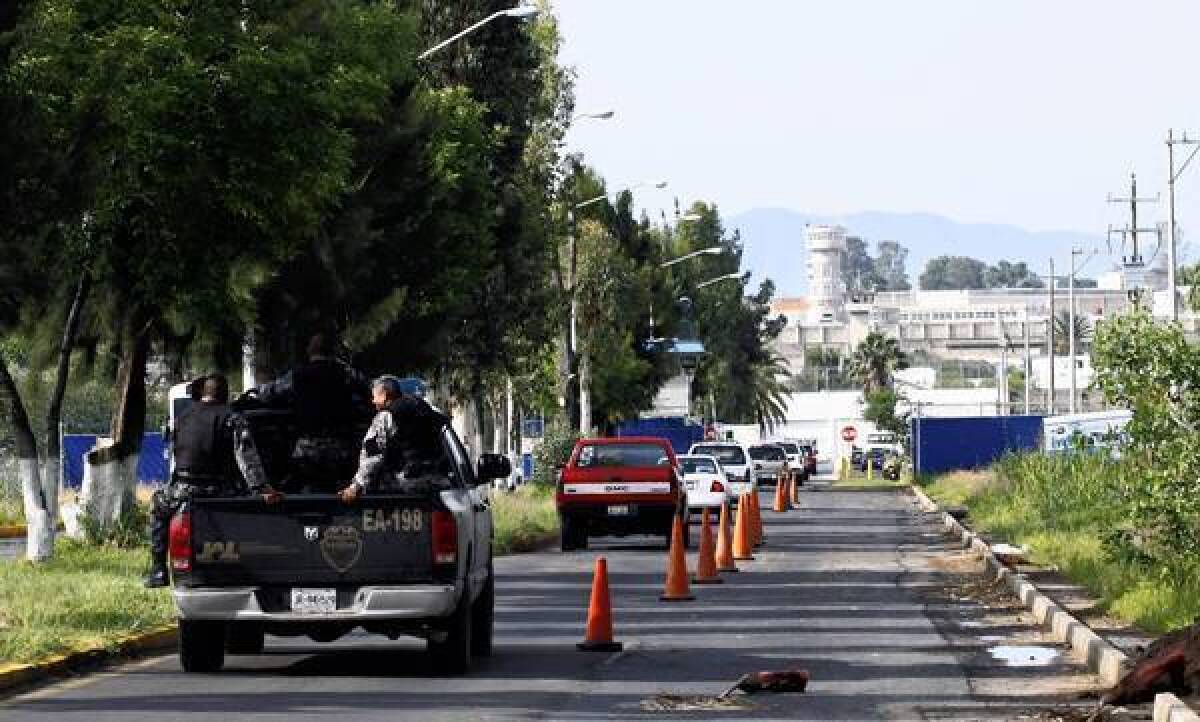Release of U.S. agent’s killer puts Mexican leader in tricky position

- Share via
MEXICO CITY — It might have been an obscure regional court that released notorious drug kingpin Rafael Caro Quintero from prison, but it will be the 8-month-old government of President Enrique Peña Nieto that will have to handle the furious fallout.
Caro Quintero, one of Mexico’s major drug cartel leaders, was freed Friday after serving 28 years for the kidnapping, torture and murder of a U.S. narcotics agent, Enrique “Kiki” Camarena, in 1985. The court vacated his conviction and lifted what remained of a 40-year sentence, based on a technicality.
The U.S. government reacted angrily. The Drug Enforcement Administration, for whom Camarena worked, said it was “deeply troubled” that the “mastermind” of his murder had been freed. And the U.S. Justice Department suggested it would pursue efforts to extradite Caro Quintero to the U.S. to face prosecution.
“It is a travesty that this guy’s guilt can be called into question 28 years after the fact,” David Wilson, a retired 32-year veteran of the DEA, said in a telephone interview. “There is no reason in the world for the Mexicans to do what they did, not in the sense of justice. Was it money or intimidation, or both?”
Under the previous government of President Felipe Calderon, who cooperated with U.S. law enforcement in extraordinarily broad ways, the number of extraditions of Mexican suspects to the U.S. soared. They included a former governor and several major drug lords.
But Calderon was replaced Dec. 1 by Peña Nieto, who was returning to the presidency the Institutional Revolutionary Party, or PRI, that had governed in autocratic fashion for more than seven decades. The PRI government has indicated it wants a more arms-length involvement with the U.S. on drug war policies.
In decades of rule, PRI politicians were known for their cozy relations with drug barons. But Peña Nieto has struggled to change that perception and portray a new, modern and transparent PRI.
The release of a major drug trafficker who killed an American official is a tricky case for Peña Nieto and will pose a new challenge to his efforts to reform the PRI’s image.
Atty. Gen. Jesus Murillo Karam said the government had to respect a court’s decision but would review the procedures and determine whether there could be further legal action.
Several legal experts said the technicality cited by the court, based in Jalisco state, where Caro Quintero was imprisoned and where his powerful cartel dominated, was specious at best. The court decided that Camarena was not a diplomat; therefore, his accused killer should have been tried in a state court, not a federal one. The court then used that discrepancy to throw out the entire case.
“It’s absurd and it creates more impunity,” said Samuel Gonzalez, a former top drug-case prosecutor in the Mexican government. He said the court could have simply turned Caro Quintero over to a state court for a new judgment instead of releasing him.
The overriding suspicion among many Mexicans and Americans alike was that corruption played a major role in freeing Caro Quintero, much as payoffs and other illicit pressures have derailed many legal proceedings in Mexico.
Retired DEA officials recalled efforts to capture Caro Quintero after Camarena’s murder, with agents chasing him to an airport, where he boarded a private jet while corrupt local police held the agents at bay. Caro Quintero was captured later in Costa Rica.
Wilson, who is now executive director of the Assn. of Former Federal Narcotics Agents, said the group planned to urge government officials to pursue Caro Quintero anew.
“I have high hopes we are not done with this guy yet,” he said.
More to Read
Sign up for Essential California
The most important California stories and recommendations in your inbox every morning.
You may occasionally receive promotional content from the Los Angeles Times.











